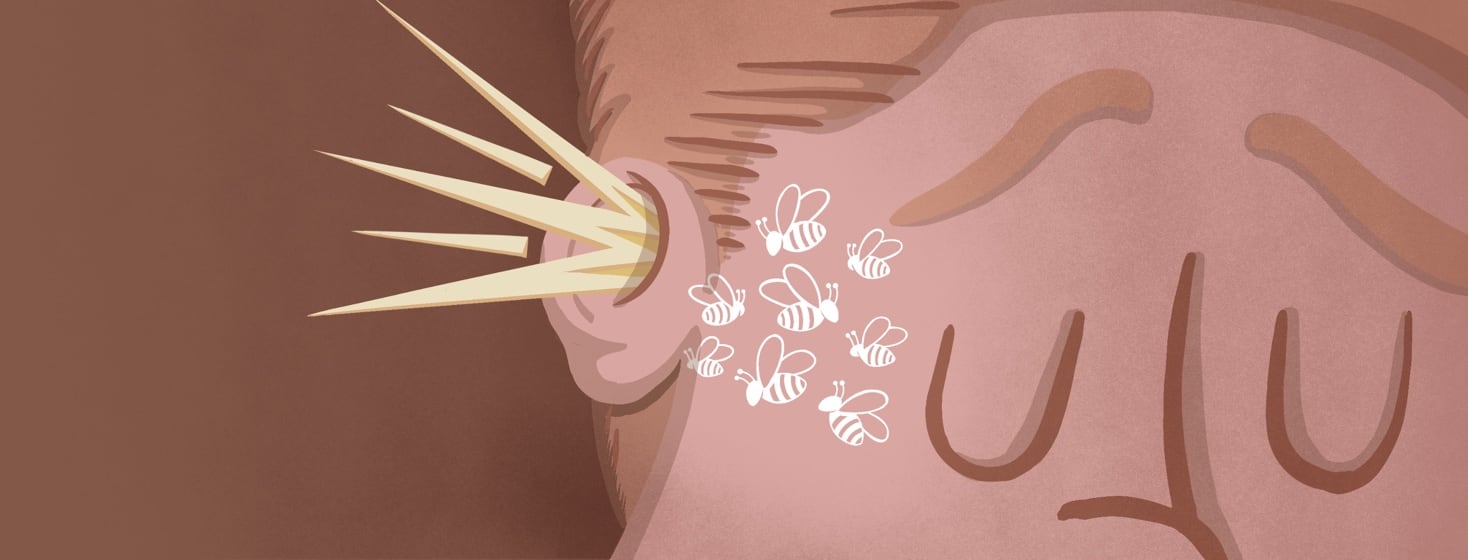
01 Aug Tinnitis and Sleep
What is tinnitus? Subjective tinnitus is the permanent perception of a sound by an individual with no identifiable corresponding acoustic source. While the intensity of the sound and frequency in which it is heard may vary greatly between individuals, it is subjectively described as either a ringing, buzzing or whistling noise. Imagine a hot summers day with hundreds of Cicadas singing in deafening chorus. It would be most unpleasant to continue to hear that sound indefinitely or at random, with nobody else the wiser.
So, it is no wonder that sleep disturbance is a common and frequent complaint reported by tinnitus sufferers. Whether loud or mild, tinnitis has been reported to increase risk of insomnia and affect sleep initiation and maintenance. Of course, with disrupted sleep comes increase daytime tiredness and can also lead to increased stress, anxiety and depression.
Tinnitus patients have also been noted to spend more time in light sleep. While we are asleep we experience multiple levels or stages of sleep. Our deepest stage, called slow-wave sleep, is important for memory consolidation and thought to be the most restful stage of sleep. Coupled with the evidence of increased light sleep in tinnitis sufferers, researchers from the Physiology, Anatomy and Genetics department at the University of Oxford came to the thought that tinnitis keeps the brain from producing the slow-wave activity needed for deep sleep, resulting in un-restorative sleep.
During their review into the link between tinnitis and sleep, they noted that research suggests however that some deep sleep is hardly affected by tinnitis, indicating the activity that happens during slow-wave sleep actually suppresses tinnitus.
In their review the researchers describe a functional overlap between brain areas affected by sleep-wake dynamics and those commonly involved in tinnitus. As there is no known cure per se for tinnitis, this investigation represents a unique window into understanding the role of sleep in sensory processing and which may offer novel insights into therapeutic interventions in the treatment and management of tinnitus.
For further information:
Linus Milinski, Fernando R. Nodal, Vladyslav V. Vyazovskiy, Victoria M. Bajo. Tinnitus: at a crossroad between phantom perception and sleep. Brain Communications, Volume 4, Issue 3, 2022.
https://doi.org/10.1093/braincomms/fcac089

